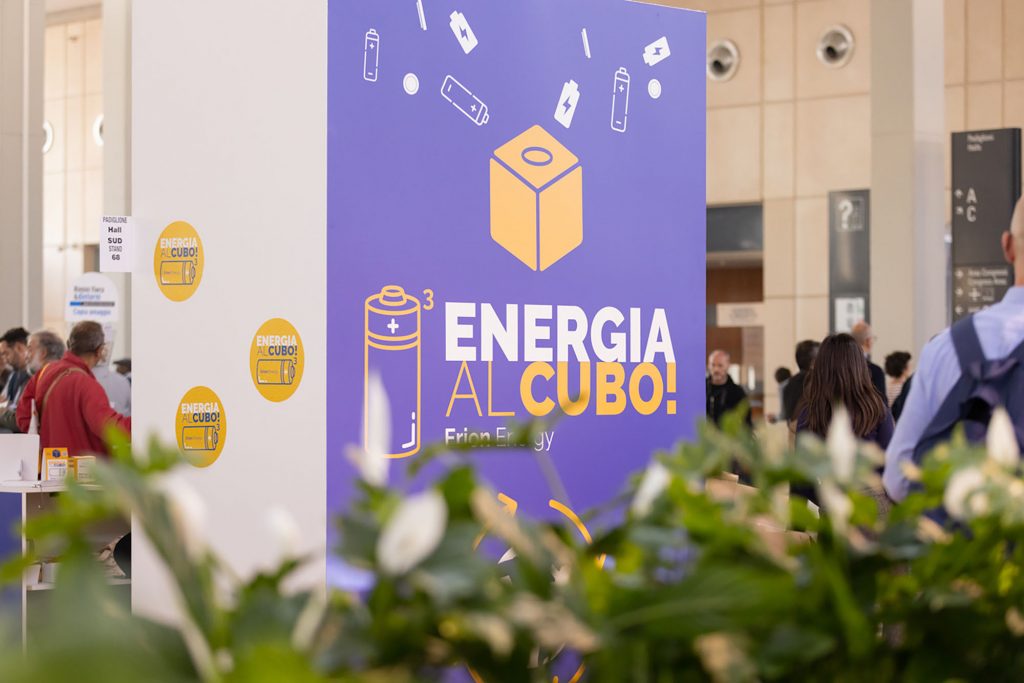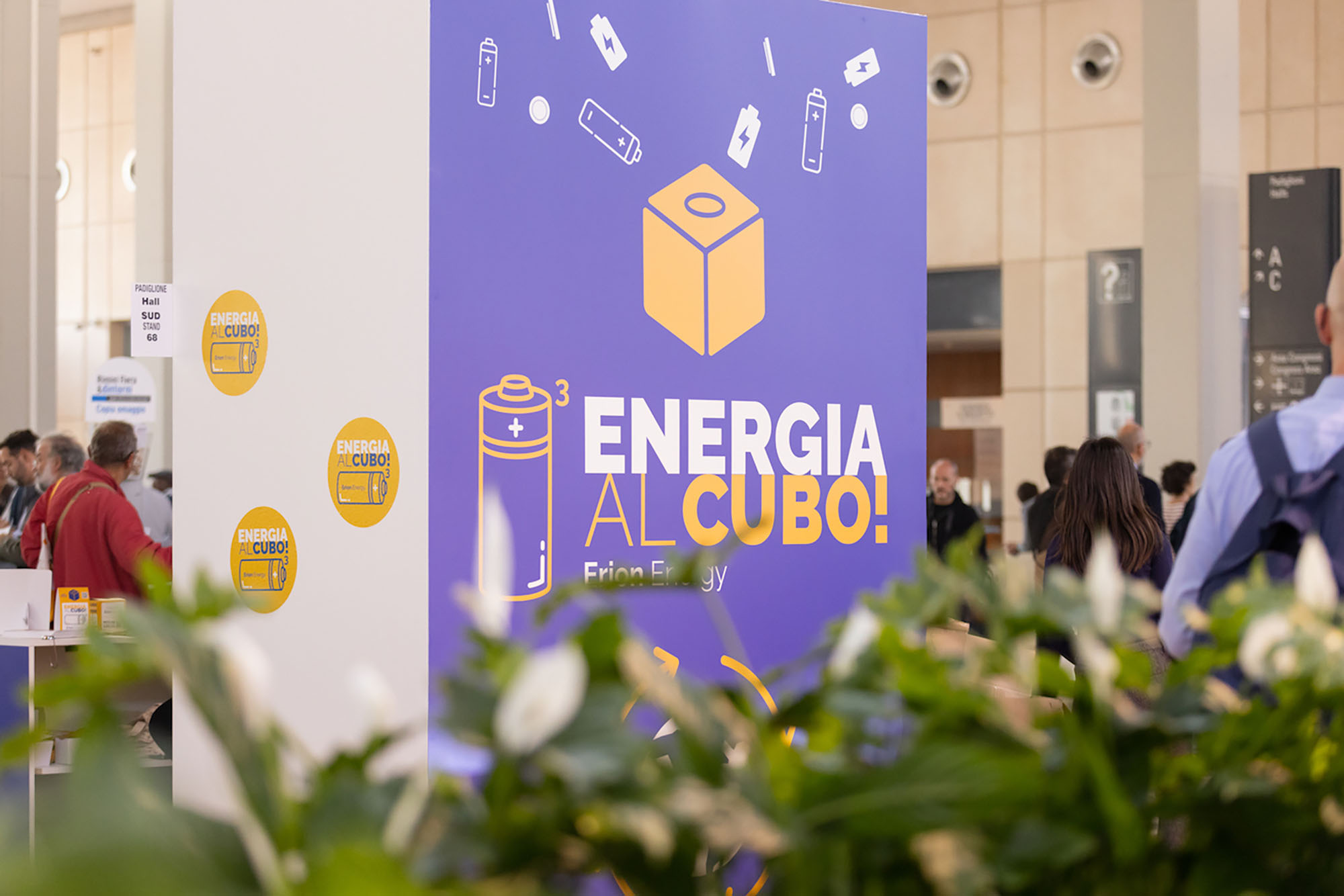Erion Energy is an Italian no-profit Producer Responsibility Organisation (PRO) dedicated to Producers of batteries and accumulators and to the strategic management of WBA (Waste Batteries and Accumulators). Erion Energy is part of Erion, a multi-compliance system for the management of all waste from electronic products, with a solid heritage in terms of authoritativeness, efficiency and quality.
Interview with Laura Castelli, General Manager of Erion Energy.
Easy Engineering: What are the main areas of activity of the company?
Laura Castelli: Erion Energy ensures its Producers the regulatory compliance and coordination of activities relating to the provision of operational take back and treatment services in order to guarantee the proper recycling of WBA and the reintegration into the production chain of Secondary Raw Materials, in line with the circular economy principles. Erion Energy identifies itself as an authoritative and qualified presence in its dealings with institutions, for trade associations and for all stakeholders on issues concerning the WBA management system, representing a political/regulatory reference point by developing studies, surveys and research as well as communication, information and awareness raising initiatives.
E.E: What’s the news about new products?
L.C: Erion Energy business is the management of the end of life of batteries and accumulators wastes. For this reason, rather than new products we can talk about new services made available for our Producers. These services are connected to the changes that the new European Battery Regulation will bring to the sector after its entry into force. The legislation, for example, will introduce environmental labelling requirements for new batteries to ensure traceability, recyclability and sustainable production. Furthermore, to contribute to the improvement of the battery supply chain, Erion Energy invests resources and effort in the development of studies and researches such as the one carried out by dss+ entitled The European Battery Regulation and challenges for the value chain, which also addresses the issue of the production of new batteries.

E.E: What are the ranges of products?
L.C: Erion Energy guarantees its Producers with various services related to the end-of-life management of their products. Thanks to our experts, we provide environmental consultancy and manage logistics for three different categories of waste related to Portable batteries and accumulators; Industrial accumulators; Vehicle accumulators. Furthermore, thanks to the researchers of our Strategic Development & Innovation team, the PRO is working on several European research projects aimed at developing environmentally sustainable products and processes. Lastly, to ensure consumer information, our Communications & Marketing team is constantly engaged in awareness campaigns on the correct behavior to adopt when it comes to handing over their batteries waste.
E.E: At what stage is the market where you are currently active?
L.C: In Italy we divide WBA collection in two macro-categories: portable batteries and accumulators; industrial and vehicles accumulators. The first category is related to municipalities, retailers and WEEE treatment plants, where batteries are removed from electronic devices such as smartphones, before being recycled. According to the latest CDCNPA Annual Report, 10,250,252 kg of portable batteries and accumulators were collected in Italy in 2021, down -7.5% compared to 2020.
The second collection channel is carried out by the PRO and by Individual Systems of the CDCNPA (the Italian Clearing House for WBA management) in a free-market regime and in full compliance with current legislation. The collection service is carried out at all those subjects who hold the waste, such as mechanicals, auto parts, electricians, large users (power stations, hospitals, airports, etc.).
The collection of industrial and vehicles accumulators reached 156,722 tonnes exceeding the 2020 level by around 1,000 tonnes.

E.E: What can you tell us about market trends?
L.C: In 2022 Erion Energy commissioned to independent consulting firm dss+ the Study “The European Battery Regulation and challenges for the value chain” that reveals that “Global battery demand is projected to grow by 25% annually to 2030. The EU is expected to occupy a growing share of the global market, increasing from 17% to 26% by 2030”. The corollary is the need for a much more strategic approach to the management of batteries and the associated flows of resources, in the EU and beyond. This will rely on a deeper understanding of the batteries’ lifecycle, from raw materials extraction to equipment assembly, to ultimate end-of-life management, as well as the environmental and social impacts of these. Erion Energy believes in the importance of developing, or implementing, WBA treatment and recycling plants in EU. This step, also highlighted by the new European Battery Regulation, is considered important for the creation of a single European market that allows to obtain critical raw materials from recycling and not from extra EU mines.
E.E: What are the most innovative products marketed?
L.C: I’d like to talk about Energia al Cubo, an awareness campaign promoted by Erion Energy to improve the quantity and quality of the collection of portable batteries throughout Italy. The initiative, carried out in partnership with some municipalities, has brought good recycling practices into the homes of Italians – through a yellow box for the collection of used batteries. A virtuous program which, starting from the summer of 2022, has involved various Italian municipalities, recording an average increase in the collecting of WBA of 30% compared to the previous year.

E.E: What estimations do you have for 2023?
L.C: This year focus is increasing WBA collection, in particular of portable batteries: we have to be ready to new challenges introduced by the new European Regulation which will be probably released in the second quarter of 2023.
We work every day to increase knowledge and awareness on how important is to manage correctly this waste, in order to recycle it and extract raw materials that could be reused in new production process. We have to focus to the development of the circular economy of this sector, it will be essential for the upcoming challenges of the next years.


